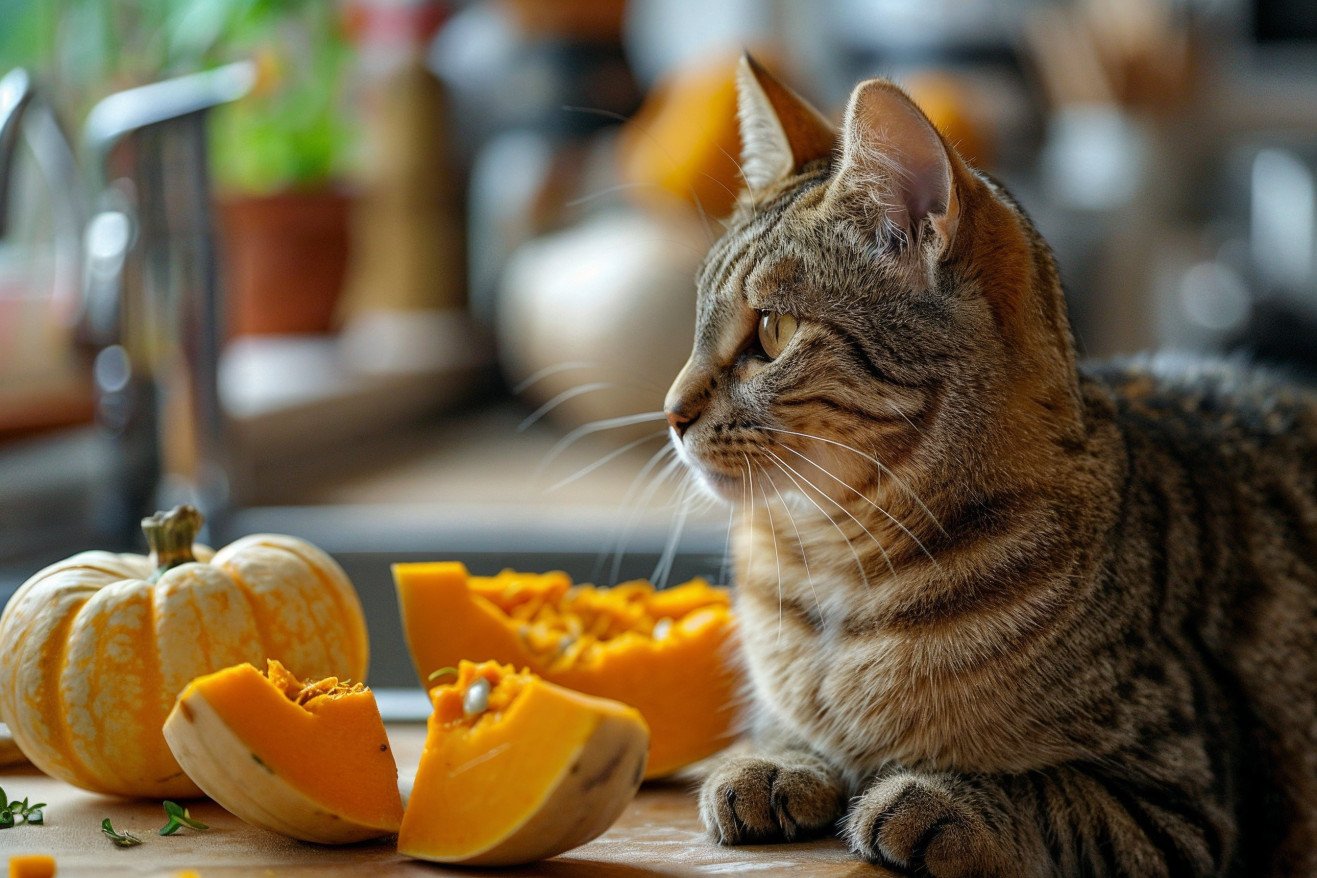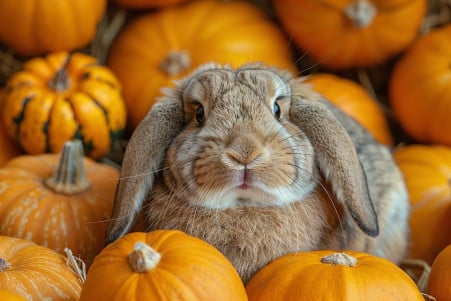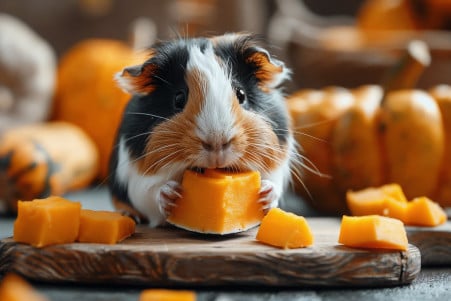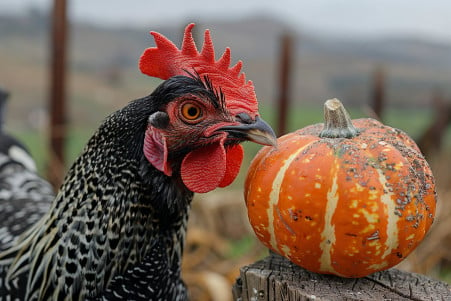Can Cats Have Squash? What to Know About the Benefits and Risks
9 June 2024 • Updated 8 June 2024

If you've ever wondered whether your cat can eat squash, you're not alone. The answer is a bit complicated and depends on several factors, including how the squash is prepared and how much your cat eats. That said, while cooked, plain squash is generally safe for cats in small amounts, it's not a good idea to feed them too much of it because it's high in carbohydrates and fiber. Since cats are obligate carnivores, they need to eat a diet that's high in animal protein to get the nutrients they need.
By looking at studies from veterinary nutritionists, pet food companies, and other independent sources, we can determine the best way to feed squash to cats so that it's safe and healthy. We can also learn about the potential benefits and drawbacks of feeding squash to cats so that you can make sure your pet gets the nutrition they need to stay healthy and happy.
Can cats eat squash?
What Kind of Squash Can Cats Eat?
According to Catster, all types of squash are safe for cats, including summer squashes, which are low in calories. However, squash should be cooked before giving it to cats. This is because, as Preventive Vet explains, raw squash can be a choking hazard and can be hard for cats to digest.
Acorn, butternut, pumpkin, spaghetti, and summer squashes are all safe for cats, according to these sources. However, when it comes to winter squashes like acorn and butternut, it's important to make sure that the squash is cooked, the skin is removed, and the seeds are taken out to prevent intestinal blockages.
PetMD even notes that pumpkin (a winter squash) can be good for cats when it's in the form of plain canned pumpkin puree, which can be used to treat digestive issues like constipation and diarrhea. In fact, vets often recommend pumpkin puree to help cats with their bowel movements.
Regardless of the type of squash, it's important to avoid the skin and seeds, which can be choking hazards. As with any new food, it's best to start with a small amount and watch for signs of an allergic reaction before increasing the portion. The safest way to feed squash to your cat is to make sure it's cooked, peeled, and free from any additional seasonings. This will allow your cat to enjoy squash as an occasional treat.
Nutritional Value of Squash for Cats
Squash is a healthy food that can offer some nutritional value to cats when consumed in small amounts. Per Love Nala, squash is low in calories and high in fiber, vitamin A, vitamin C, potassium, and antioxidants. The fiber content in squash can help with digestion and regularity in cats, as noted by Hill's Pet. Vitamin A is good for eye health, and vitamin C is an immune system booster. The antioxidants in squash can also help with inflammation and skin and coat health, per Fruitables.
That said, it's worth mentioning that even though squash does have some nutritional value, it's not especially nutritionally dense. As Fruitables points out, squash is not a substitute for a cat's nutritionally complete, meat-based diet, but it can be used as a supplement or treat on occasion.
Potential Dangers and Precautions of Feeding Squash to Cats
Even though squash can be a healthy and safe treat for cats, there are some potential dangers and precautions to keep in mind. BeChewy points out that cats are obligate carnivores, and their diet should be made up mostly of meat. Feeding cats too much squash can cause digestive problems like diarrhea or vomiting because of its high fiber content, according to Greg.app.
In addition, some cats may be allergic to squash, so it's important to introduce it to your cat's diet gradually and watch for any signs of an allergic reaction, according to Animal Gator. Raw or undercooked squash can also be a choking hazard or cause an intestinal blockage, so it's important to make sure that any squash you feed your cat is cooked, peeled, and has had the seeds removed.
Finally, squash should never be prepared with added salt, sugar, oils, or seasonings, all of which can be harmful to cats. Animal Gator recommends talking to your vet before making any major changes to your cat's diet, especially if your cat has any underlying health issues. As with all human foods, it's important to prepare squash for cats properly and feed it to them in moderation.
Feeding Cats Squash: How Much and How to Prepare
As per Cat Safe Foods, any new food that you give your cat should be introduced in small amounts and watched for any adverse reactions. The site also suggests that any food that is not part of a cat’s regular diet should account for no more than 10% of their daily caloric intake. This is especially important to note since, as Spot® points out, pumpkin, a type of winter squash, is high in fiber and can cause diarrhea if consumed in large amounts.
According to Vetstreet, cooked winter squash can be a healthy treat for cats, but it’s important to remember that treats should make up no more than 10% of a cat’s daily diet. When it comes to feeding your cat squash, it’s important to start with very small amounts, such as 1-2 teaspoons of cooked, mashed squash, and watch for any adverse reactions, according to Cat Safe Foods.
Squash should be cooked thoroughly and served without the skin and seeds and without any added spices or oils to avoid potential choking hazards or digestive upset, as specified by Spot®. It’s fine to mix squash in with your cat’s regular food or serve it to them on its own, but the amount you offer should be based on your cat’s age, weight, and health status.
Conclusion: How to Think About Squash for Cats
Squash is safe for cats in moderation, but it should never be used as a substitute for a balanced, meat-based diet. Cooked, peeled squash can offer some nutritional benefits, including fiber, vitamins A and C, and antioxidants, but the nutritional content is low. Feeding cats too much squash can cause digestive problems, including diarrhea and vomiting, so it's important to introduce it gradually and feed it in the right amounts, which should be less than 10% of a cat's daily caloric intake.
Acorn, butternut, pumpkin, and summer squash are all safe options as long as they are prepared properly. However, the skin and seeds of these squashes should be removed to avoid choking and intestinal blockages. It's always a good idea to consult a vet before making any major changes to your cat's diet, especially if your cat has any underlying health issues.
If you follow these guidelines, you can safely feed squash to your cat as an occasional treat. However, it's important to remember that squash should never be used to replace a balanced, meat-based diet. By weighing the benefits and drawbacks, cat owners can ensure that they are feeding their pets squash in a way that is safe and healthy.


